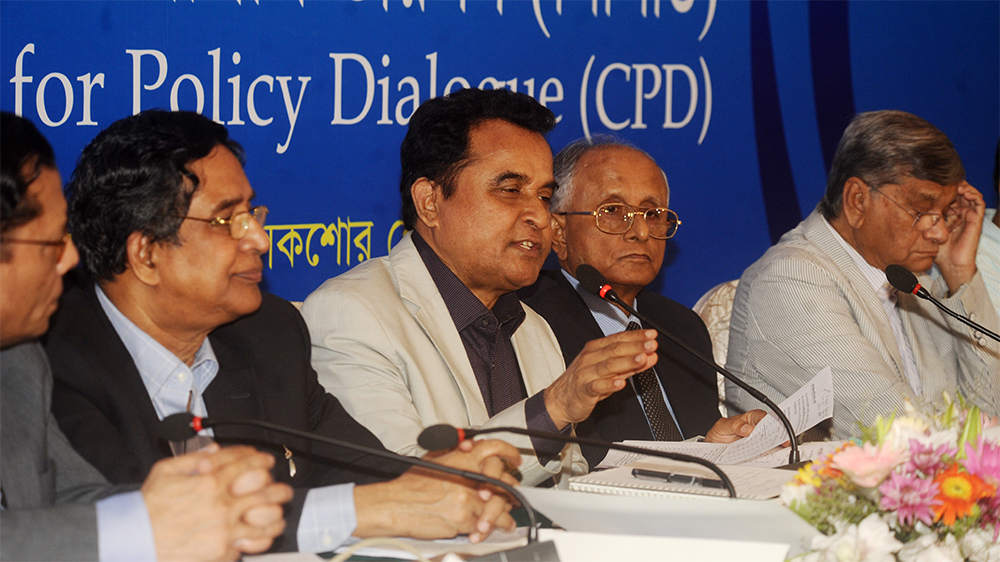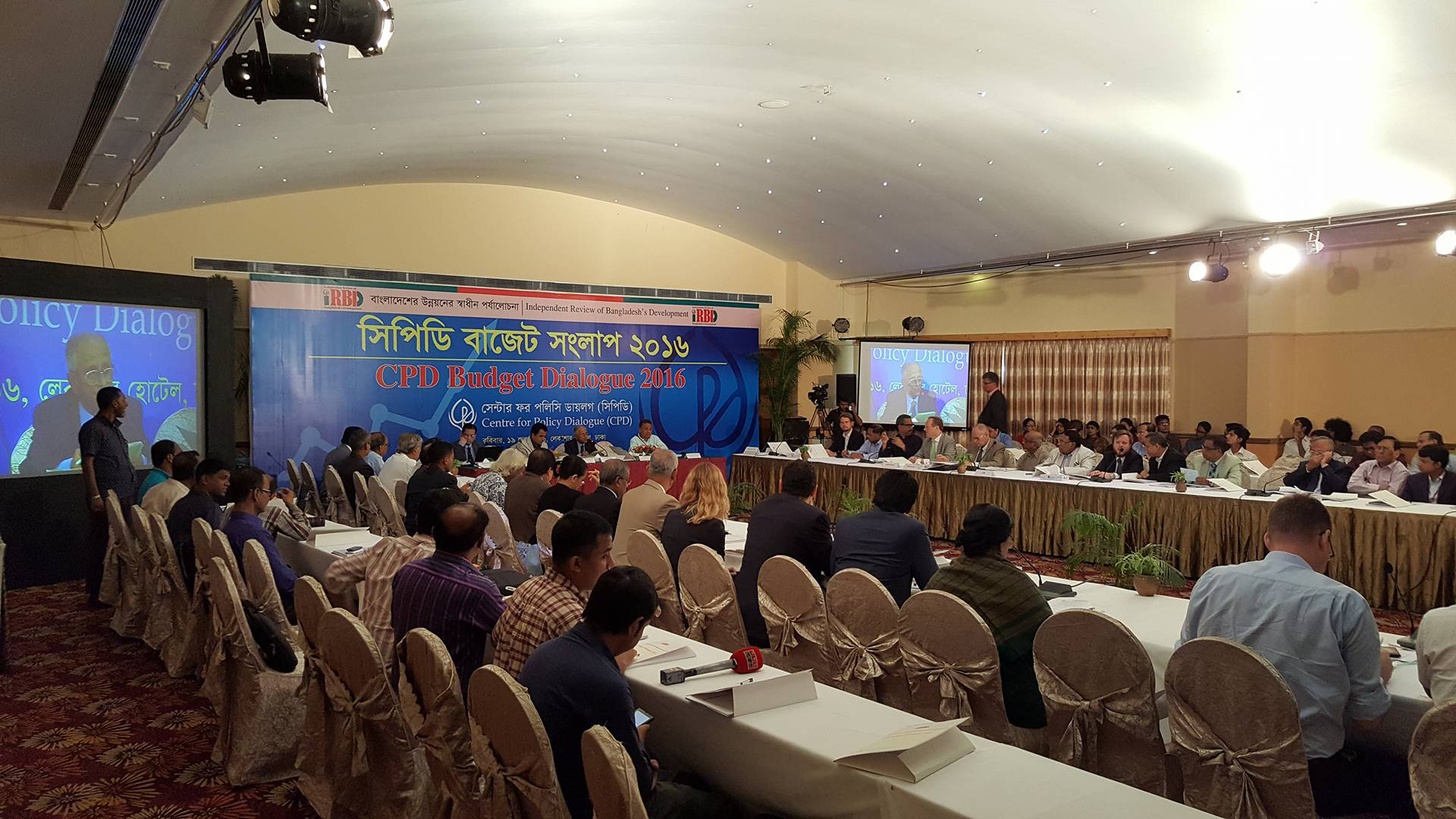
To sustain the macroeconomic stability in Bangladesh the government should focus on raising the rate of investment in the economy. Stimulating the Special Economic Zones (SEZs) will attract both private and foreign investment which will contribute to the employment generation as well. To achieve the 7.2pc GDP growth the government should try to increase the investment to GDP ratio which is lower among the South Asian countries.
It would be very difficult for the government to meet the revenue generation target in FY2017 without increasing the tax-net. The government may concentrate on expanding tax-net and a steady tax structure instead of introducing new tax-rates every year.
Along with these observations a wide range of stakeholders shared their views on the proposed National Budget FY2016-17 at the CPD Budget Dialogue 2016 held at Lakeshore Hotel on 19 June 2016. The dialogue was organised as part of the CPD’s flagship programme Independent Review of Bangladesh’s Development (IRBD).
Speaking as the Chair of the dialogue CPD Board of Trustees member Mr M Syeduzzaman, former Finance Minister, put emphasis on better use foreign aid and more investment in infrastructure development. He suggested increasing efficacy and planning for sustainable use of the foreign aids where approximately USD 5.7bln of foreign aid is in the pipeline in FY2017. He also asked the government to increase budgetary allocations in agricultural research and innovations.
While presenting the keynote on the analysis of the proposed National Budget FY2016-17, CPD Executive Director Professor Mustafizur Rahman identified the strengths and weaknesses of the budget. The analysis was made from four distinctive point of view- investors, producers, consumers and citizens. Professor Rahman identified the low inflationary pressure; declining interest rates; low global commodity prices; manageable fiscal deficit; resilient growth of export earnings; favourable Balance of Payments and robust GDP growth as comfortable zones for Bangladesh economy in recent years. On the other hand the sluggish private investment; low rate of employment generation; credibility gap due to poor fiscal planning; domestic borrowing based financing mix of the budget deficit; unachieved tax revenue target; weakness in ADP and foreign aid implementation; lack of good governance in the financial sector are the major concerns for Bangladesh economy, he said.
In his concluding suggestions CPD Executive Director Professor Mustafizur Rahman called for establishing Public Expenditure Review Commission and transparency in government’s asset acquisition. He also stressed on promoting greater involvement of parliamentary standing committees in budget implementation process and introducing quarterly reporting system in the parliament. It will help to establish an effective result based monitoring mechanism for budget implementation, he added.
Addressing as Chief Guest Mr A H M Mustafa Kamal, MP, Hon’ble Minister for Planning, mentioned about governments achievements in budget implementation and strengthening the economy of Bangladesh. Exemplifying the low investment and GDP ratio of Singapore, Malaysia, Thailand, Vietnam and the Philippines, Mr Kamal argued that it is also possible for Bangladesh to achieve the targeted GDP with lower investments rates like these countries. The economic growth of Bangladesh is on right tack and by 2041 the country will be one of the elite economies in the world, he added.

Special Guest Mr M A Mannan MP, Hon’ble State Minister for Finance and Planning acknowledged the complicacies in budget implementation and mentioned that the government is also trying to bring some reforms to strengthen the implementation process. He also informed that the government will provide necessary infrastructure facilities to boost the growth in private investment.
Former Commerce Minister Mr Amir Khosru Mahmud Chowdhury, present as Guest of Honour at the dialogue, mentioned the lack of good governance as major obstacle for growth in investment. He felt the need of rule of law, democratic freedom and investment friendly environment in the country.
The floor discussion was attended by bureaucrats, diplomats, political leaders, trade-leaders, economists, development practitioners, journalists, students among others.


